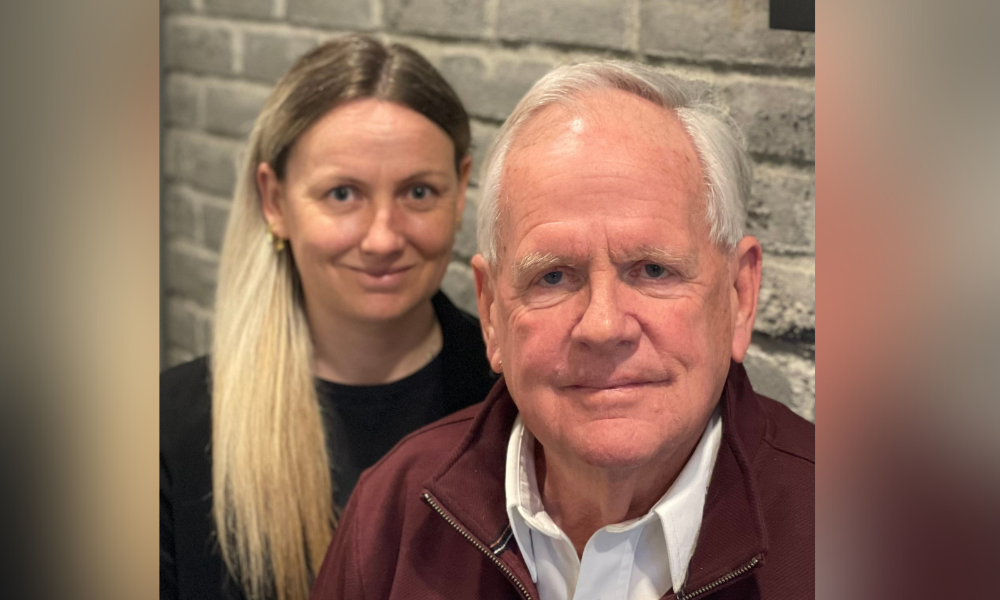
Justice Broad lifted the stay of proceeding against the Ontario Police by Caledonia residents

In a motion to pursue a class-action against the Ontario Provincial Police by Caledonia residents, the Superior Court of Justice has annulled the mandatory stay arising from s. 17 of the Crown Liability and Proceedings Act, exempting the Crown from disclosure because it is inconsistent with s. 96 of the Constitution.
The government has powers to regulate proceedings but it is restricted constitutionally by Supreme Court decisions, and in this case, they went overboard, Counsel for the plaintiff, Peter Murray says.
"You can't have access to justice if you can't access the court. You have to access the court and get a hearing to have access to justice and without access to the courts, the rule of law means nothing."
Plaintiffs are obligated to disclose their case completely and subjected to examination, but under the CLPA, the Crown has no responsibility to file any documents, affidavits or be examined in connection with the matter, Murray says.
"The province was trying to block claims where you're alleging that the government acted illegally or in bad faith."
Superior Court Justice David Broad wrote that prohibiting defendants' documentary or oral discovery is inconsistent with s. 96 and prevents many claimants with meritorious claims against the Crown based on bad faith or public office misfeasance from having meaningful access to the court.
The rule of law gives a proper interpretation of s. 96 and is fulfilled by ensuring that a litigant's claim is decided on its merits, including the right to present evidence and not by the court affording privilege to make submissions, Justice Broad wrote.
He wrote that s.17 of the CLPA precludes claimants from any effective means of presenting sufficient, credible and necessary evidence to satisfy the court that there is a reasonable possibility that their lawsuits would be successful.
"The inconsistency with s. 96 lies solely in the provisions relieving the Crown from giving documentary or oral discovery as an essential part of the screening enforced by s. 17, thereby depriving plaintiffs with meritorious claims from accessing sufficient and necessary evidence to establish that the lawsuit may succeed."
In Poorkid Investments Inc. v. HMTQ, residents of Caledonia commenced a class action against the OPP seeking damages for businesses and residents affected by the city's four-month-long road and rail blockade in 2020 because of protesters. However, the CLPA that was passed in 2019 automatically stayed the action.
A proposed subdivision remains occupied in addition to the blockades, and Murray says the builder returned deposits to purchasers of the pre-built houses, and 180 people now find themselves searching a market where it costs about $300,000 more for a similar home.
"Essentially, we felt that this law basically tied your hands behind your back, you had to prove something before the trial without any disclosure from the other side. We felt that was unfair and possibly unconstitutional."
Murray says that several past class actions such as conditions on reserve, the Walkerton bladder issue, and prisoner's mistreatment might not be effective because of the CLPA if commenced today.
The applicants challenged s.17 of the CLPA, arguing that it imposes a procedural barrier to litigants seeking to hold the government and its officials accountable from having meaningful court access to decide their cases on merits.
The Crown argued that s. 17 of the CLPA might not interfere with access because litigants can pursue leave to proceed from the Superior Court, which determines the standard for granting leave and whether it is satisfied, but Justice Broad disagreed.
"A direct and inevitable causal link has been shown between the barrier represented by section 17 of the CLPA, which requires a plaintiff to show credible evidence to support a finding that they have a reasonable possibility of succeeding without access to any documentary or oral discovery from the defendant and obtaining access to justice."
Justice Broad also affirmed Western law dean Erika Chamberlain's view that the law might be unconstitutional because plaintiffs can only speculate in lawsuits involving the government's bad faith without disclosure or questioning government officers, which may not be sufficient for court authorization to proceed.
"Bad faith is essentially a state of mind, so it's typically difficult to prove without at least some evidence from the defendant. For instance, it may require disclosure of internal communications showing that an official was acting for an improper purpose or with bias against the plaintiff," Chamberlain wrote in an article raising concerns about the CLPA.
Law Times previously reported that the Law Commission of Ontario, which does independent research on legal reform, addressed its concerns about the CLPA.
"The Crown Liability and Proceedings Act could prevent some or potentially all negligence claims against the Province of Ontario, including some or all potential class actions. This situation could create significant if not insurmountable barriers to justice, to judicial economy and behaviour modification in class actions against the province," said the LCO's report "Class Actions: Objectives, Experiences and Reforms.
Murray says he looks forward to proceeding with the class action on behalf of the people in Caledonia, but the Crown might appeal Justice Broad's decision.